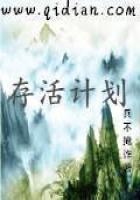Hay had no wish to be Secretary of State. He much preferred to remain Ambassador, and his friends were quite as cold about it as he. No one knew so well what sort of strain falls on Secretaries of State, or how little strength he had in reserve against it. Even at Surrenden he showed none too much endurance, and he would gladly have found a valid excuse for refusing.
The discussion on both sides was earnest, but the decided voice of the conclave was that, though if he were a mere office-seeker he might certainly decline promotion, if he were a member of the Government he could not.
No serious statesman could accept a favor and refuse a service. Doubtless he might refuse, but in that case he must resign. The amusement of ****** Presidents has keen fascination for idle American hands, but these black arts have the old drawback of all deviltry; one must serve the spirit one evokes, even though the service were perdition to body and soul. For him, no doubt, the service, though hard, might bring some share of profit, but for the friends who gave this unselfish decision, all would prove loss.
For one, Adams on that subject had become a little daft. No one in his experience had ever passed unscathed through that malarious marsh. In his fancy, office was poison; it killed -- body and soul -- physically and socially. Office was more poisonous than priestcraft or pedagogy in proportion as it held more power; but the poison he complained of was not ambition; he shared none of Cardinal Wolsey's belated penitence for that healthy stimulant, as he had shared none of the fruits; his poison was that of the will -- the distortion of sight -- the warping of mind -- the degradation of tissue -- the coarsening of taste -- the narrowing of sympathy to the emotions of a caged rat. Hay needed no office in order to wield influence.
For him, influence lay about the streets, waiting for him to stoop to it; he enjoyed more than enough power without office; no one of his position, wealth, and political experience, living at the centre of politics in contact with the active party managers, could escape influence. His only ambition was to escape annoyance, and no one knew better than he that, at sixty years of age, sensitive to physical strain, still more sensitive to brutality, vindictiveness, or betrayal, he took office at cost of life.
Neither he nor any of the Surrenden circle made presence of gladness at the new dignity for, with all his gaiety of manner and lightness of wit, he took dark views of himself, none the lighter for their humor, and his obedience to the President's order was the gloomiest acquiescence he had ever smiled. Adams took dark views, too, not so much on Hay's account as on his own, for, while Hay had at least the honors of office, his friends would share only the ennuis of it; but, as usual with Hay, nothing was gained by taking such matters solemnly, and old habits of the Civil War left their mark of military drill on every one who lived through it. He shouldered his pack and started for home. Adams had no mind to lose his friend without a struggle, though he had never known such sort of struggle to avail. The chance was desperate, but he could not afford to throw it away; so, as soon as the Surrenden establishment broke up, on October 17, he prepared for return home, and on November 13, none too gladly, found himself again gazing into La Fayette Square.
He had made another false start and lost two years more of education; nor had he excuse; for, this time, neither politics nor society drew him away from his trail. He had nothing to do with Hay's politics at home or abroad, and never affected agreement with his views or his methods, nor did Hay care whether his friends agreed or disagreed. They all united in trying to help each other to get along the best way they could, and all they tried to save was the personal relation. Even there, Adams would have been beaten had he not been helped by Mrs. Hay, who saw the necessity of distraction, and led her husband into the habit of stopping every afternoon to take his friend off for an hour's walk, followed by a cup of tea with Mrs. Hay afterwards, and a chat with any one who called.
For the moment, therefore, the situation was saved, at least in outward appearance, and Adams could go back to his own pursuits which were slowly taking a direction. Perhaps they had no right to be called pursuits, for in truth one consciously pursued nothing, but drifted as attraction offered itself. The short session broke up the Washington circle, so that, on March 22, Adams was able to sail with the Lodges for Europe and to pass April in Sicily and Rome.
With the Lodges, education always began afresh. Forty years had left little of the Palermo that Garibaldi had shown to the boy of 1860, but Sicily in all ages seems to have taught only catastrophe and violence, running riot on that theme ever since Ulysses began its study on the eye of Cyclops. For a lesson in anarchy, without a shade of sequence, Sicily stands alone and defies evolution. Syracuse teaches more than Rome. Yet even Rome was not mute, and the church of Ara C渓i seemed more and more to draw all the threads of thought to a centre, for every new journey led back to its steps -- Karnak, Ephesus, Delphi, Mycencæ;, Constantinople, Syracuse -- all lying on the road to the Capitol. What they had to bring by way of intellectual riches could not yet be discerned, but they carried camel-loads of moral; and New York sent most of all, for, in forty years, America had made so vast a stride to empire that the world of 1860 stood already on a distant horizon somewhere on the same plane with the republic of Brutus and Cato, while schoolboys read of Abraham Lincoln as they did of Julius Caesar. Vast swarms of Americans knew the Civil War only by school history, as they knew the story of Cromwell or Cicero, and were as familiar with political assassination as though they had lived under Nero. The climax of empire could be seen approaching, year after year, as though Sulla were a President or McKinley a Consul.















